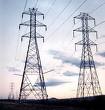The Electric Power Research Institute (EPRI), a non-profit industry organization representing electric utility companies, has stirred controversy by launching a project that would fund an update and reissue of a booklet from the National Institute of Environmental Health Sciences (NIEHS), a branch of the National Institutes of Health. This booklet “Electric and Magnetic Fields Associated with the Use of Electric Power” was first issued in 1999 when the Federal Electric and Magnetic Fields Research and Public Information Dissemination (EMF-RAPID) Project concluded with the submission of a report to Congress prepared by the NIEHS. Essentially, the researchers concluded that there were not enough epidemiological studies or an identified mechanistic basis to classify extremely low frequency EMFs as likely carcinogens although it did call for further research. An updated version of the booklet was released in 2002.Now, the EPRI has asked member companies to contribute $30,000 a piece for a reissue of the booklet citing NIEHS’ reputation for scientific credibility and mentions “informed dialog about transmission line development between companies and public stake holders.” Presumably, the new version would come to the same “unproven” conclusion while calling for ongoing research. Still, many in the scientific community have expressed deep concern about using a respected research facility for the commercial purpose of persuading citizens (those public stake holders) to acquiesce to the construction of more power lines and see this as another attempt to use science as propaganda. View the EPRI document online.The health impact of human exposure to electromagnetic fields continues to be a controversial topic. For a detailed look at exposure in a modern automobile, just click here.
EPRI Launches Controversial Project of Updating NIEHS Booklet on EM Exposure





